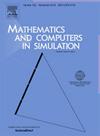COVID-19封锁对短期负荷预测的影响
IF 4.4
2区 数学
Q1 COMPUTER SCIENCE, INTERDISCIPLINARY APPLICATIONS
引用次数: 0
摘要
电力需求的准确预测对电力系统的高效运行至关重要。然而,疫情期间实施的前所未有的活动限制导致电力消耗出现不可预见的中断,对现有系统的预测能力提出了挑战。本文对西班牙电网的分析证明了这一现象是普遍存在的,影响着全球的电力系统。在实施活动限制后,预测系统的精度大大降低。这篇文章提供了一个深入的分析影响预测准确性在西班牙的背景下。此外,还提出了一种方法来识别预测系统失控的情况,需要采取纠正措施。本文介绍了一种直接的纠偏措施,减少了失控期间的误差。它被设计为现有预测模型的补充,在达到失控情况时修改其输出。结果表明,进一步的研究可以大大减轻这些事件的影响,提高预测系统的弹性。本文章由计算机程序翻译,如有差异,请以英文原文为准。
Impact of COVID-19 lockdown in short-term load forecasting
Accurate prediction of electrical demand is crucial for the efficient operation of power systems. However, the unprecedented activity restrictions imposed during the pandemic led to unforeseen disruptions in electrical consumption, challenging the predictive capabilities of existing systems. This phenomenon was widespread, affecting power systems globally, as evidenced by analyses of the Spanish electricity grid presented in this paper. The precision of prediction systems significantly diminished upon the implementation of activity restrictions. This article offers an in-depth analysis of the impact on prediction accuracy in the Spanish context. Moreover, it proposes a method to identify situations where the prediction system is out of control, necessitating corrective measures. The paper introduces a straightforward corrective measure that reduces errors during out-of-control periods. It is designed as an addition to the existing forecast model, modifying its output when an out-of-control situation is reached. The results suggest that further investigation could substantially mitigate the impact of such events and enhance prediction system resilience.
求助全文
通过发布文献求助,成功后即可免费获取论文全文。
去求助
来源期刊

Mathematics and Computers in Simulation
数学-计算机:跨学科应用
CiteScore
8.90
自引率
4.30%
发文量
335
审稿时长
54 days
期刊介绍:
The aim of the journal is to provide an international forum for the dissemination of up-to-date information in the fields of the mathematics and computers, in particular (but not exclusively) as they apply to the dynamics of systems, their simulation and scientific computation in general. Published material ranges from short, concise research papers to more general tutorial articles.
Mathematics and Computers in Simulation, published monthly, is the official organ of IMACS, the International Association for Mathematics and Computers in Simulation (Formerly AICA). This Association, founded in 1955 and legally incorporated in 1956 is a member of FIACC (the Five International Associations Coordinating Committee), together with IFIP, IFAV, IFORS and IMEKO.
Topics covered by the journal include mathematical tools in:
•The foundations of systems modelling
•Numerical analysis and the development of algorithms for simulation
They also include considerations about computer hardware for simulation and about special software and compilers.
The journal also publishes articles concerned with specific applications of modelling and simulation in science and engineering, with relevant applied mathematics, the general philosophy of systems simulation, and their impact on disciplinary and interdisciplinary research.
The journal includes a Book Review section -- and a "News on IMACS" section that contains a Calendar of future Conferences/Events and other information about the Association.
 求助内容:
求助内容: 应助结果提醒方式:
应助结果提醒方式:


